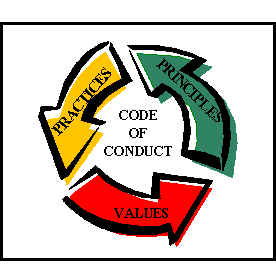- The civil services have seen a return in popularity in India, with an increasing number of people applying each year.
- In this post, we will look at the different norms that regulate civil officials and the constraints they encounter throughout their careers.

Allocation of Civil Services and Services
- Successful civil service examination candidates can join a variety of services based on their rank and personal preferences.
- The Indian Administrative Service (IAS), Indian Police Service (IPS), and Indian Forest Service (IFS) are three notable All India Services.
- Other services, known as federal Civil Services, are administered by the federal government and lack a state cadre structure.
Civil Service Conduct Regulations
- Two sets of rules govern civil servants: the All India Services Conduct Rules, 1968, and the Central Civil Services Conduct Rules, 1964.
- These guidelines address a wide range of concerns, including civil officials’ anticipated demeanour and conduct.
Issues with these rules
(1) Vague and Specific Rules
- The Conduct Rules contain both general and specific restrictions.
- Rule 3(1) emphasises the need of maintaining perfect honesty and devotion to duty while not engaging in any conduct unbecoming of a government worker.
- Rule 4(1) makes it illegal to use one’s position or influence to acquire employment for family members with private or non-governmental organisations.
(2) Restrictions on Political Affiliation and Expression of Opinion
- Rule 5(1) forbids civil servants from belonging to political parties or political organisations.
- Rule 7 prohibits civil officials from criticising government policies or acts in public media or documents.
(3) Prohibition on Dowry
- Under Rule 11(1-A), civil servants are expressly barred from giving or receiving dowry.
- Civil officials are expected to declare any gifts received from close family or personal friends that exceed Rs. 25,000.
Rules Modifications and Updates
- The Conduct Rules are not set in stone; they have been altered and updated over time.
- The government determines the political nature of organisations, which has an impact on civil workers’ involvement with them.
- In 2014, new sub-rules were established that focused on upholding high ethical standards, integrity, political neutrality, and accountability.
Coverage and Penalties
- These guidelines apply to civil servants as soon as they begin training as part of their probation period.
- Rules violations can result in severe sanctions, including removal from the service.
- In tackling corruption issues, the Prevention of Corruption Act (POCA) supplements the Conduct Rules.
Problems with Enforcement
- While the rules describe the consequences, enforcing them might be difficult.
- Complaints must be detailed in order for action to be taken.
- There are proper mechanisms for registering complaints, such as the Central Vigilance Commission and investigation agencies.
Way Forward
- To ensure the successful execution of the Conduct Rules, the complaint procedure must be streamlined and transparency encouraged.
- The rules should be reviewed and updated on a regular basis to address emerging difficulties and ensure their relevance.
- Training programmes and public awareness initiatives can help civil officials understand their roles and the implications of noncompliance.
- Collaboration between government agencies, civic society, and the general public can help to develop a culture of accountability and ethical behaviour among civil workers.
Source: https://indianexpress.com/article/explained/civil-services-conduct-8628406/
